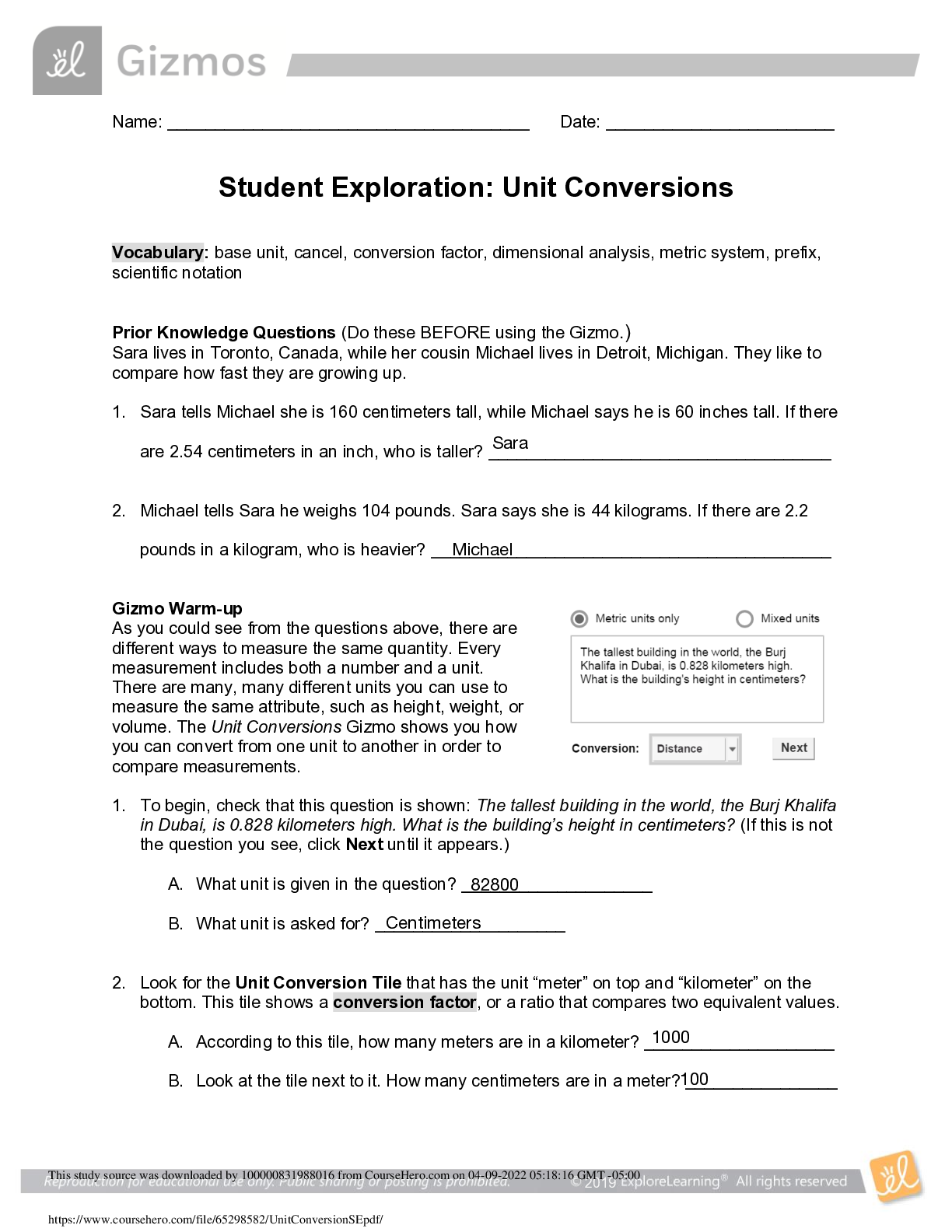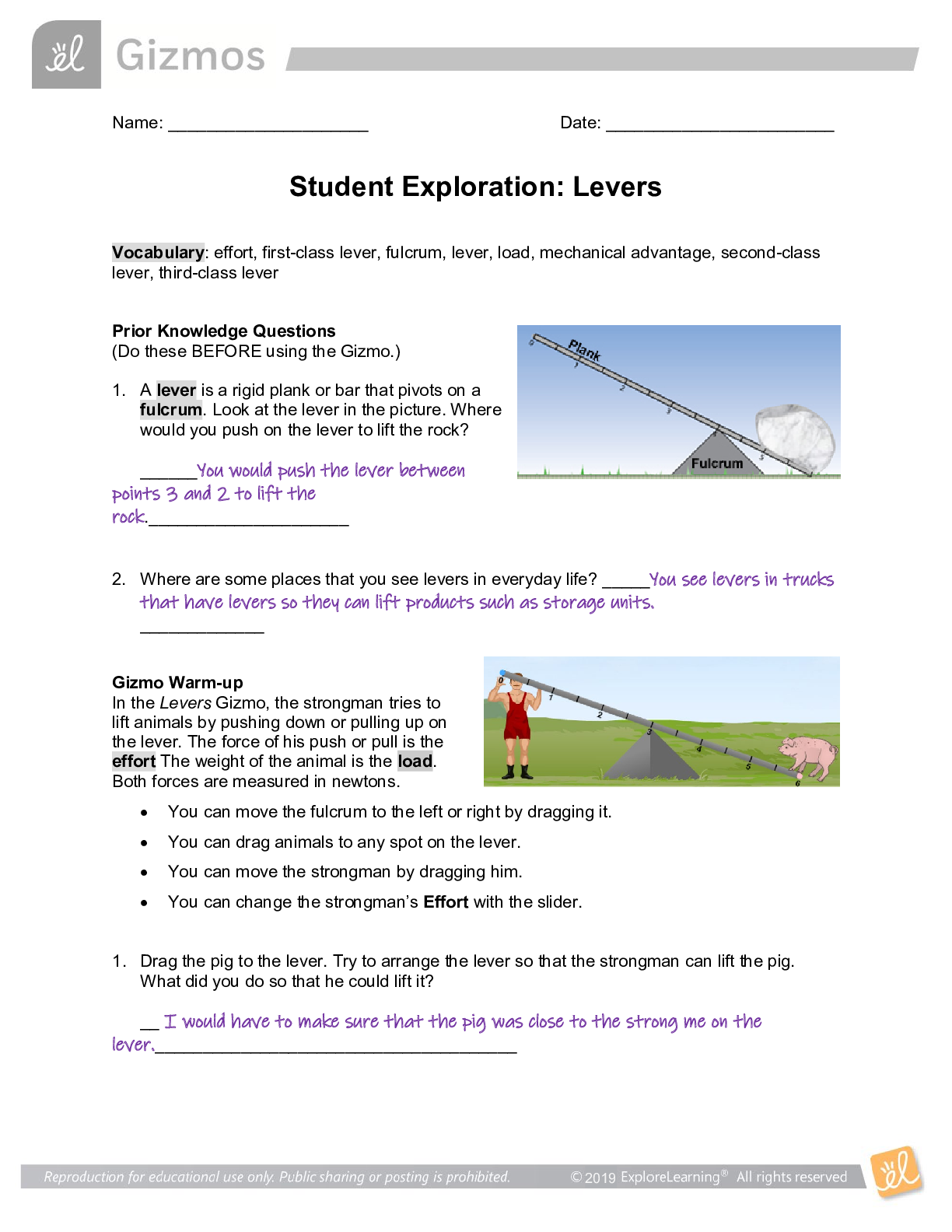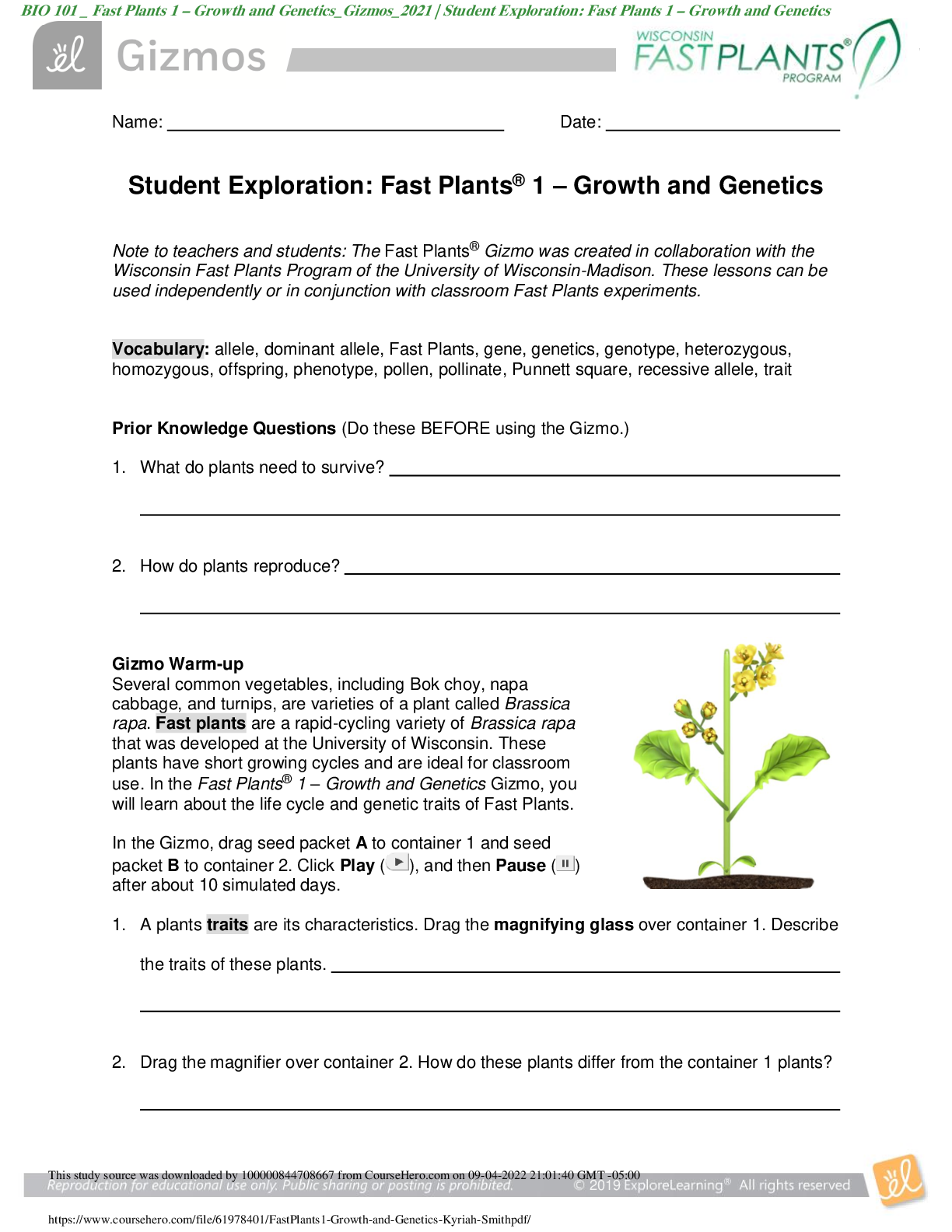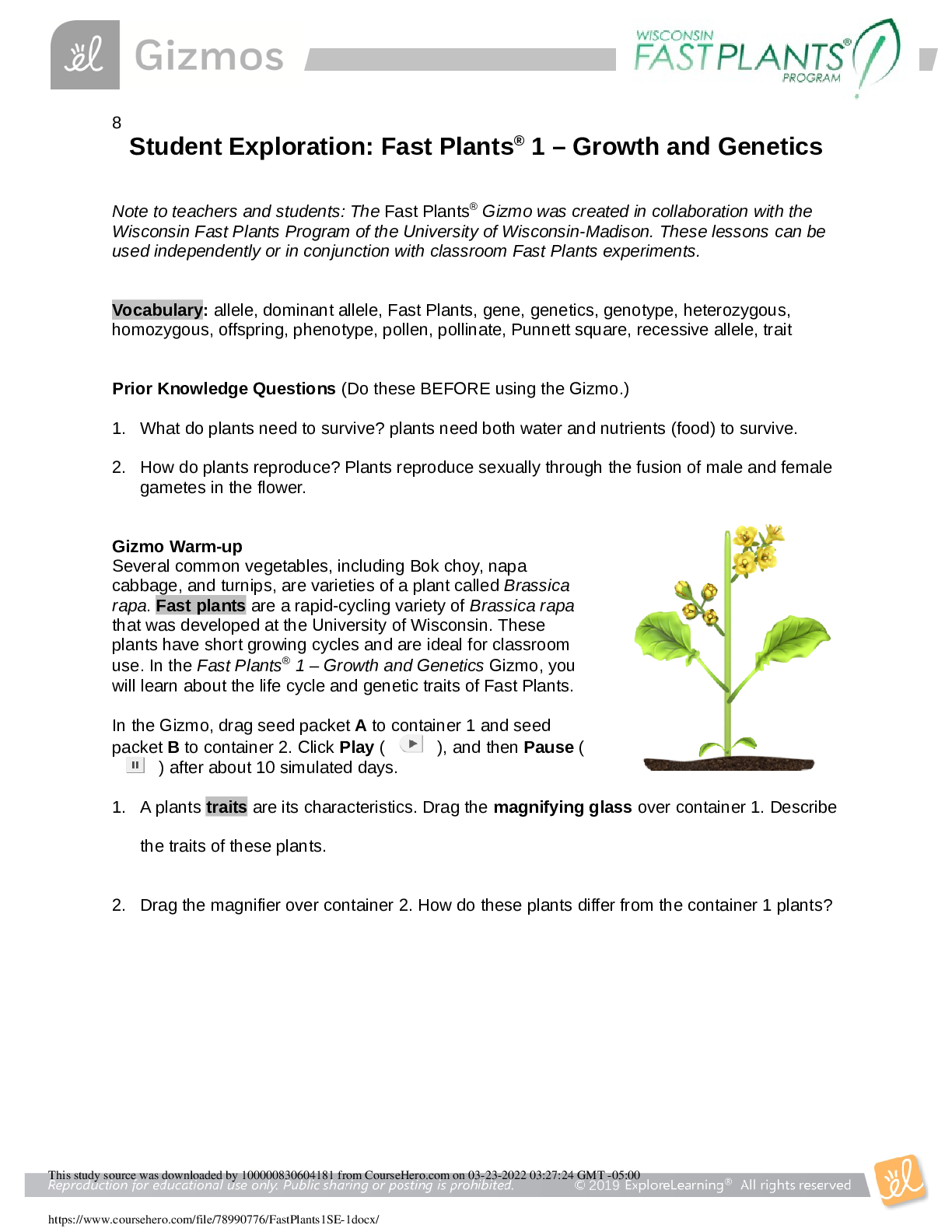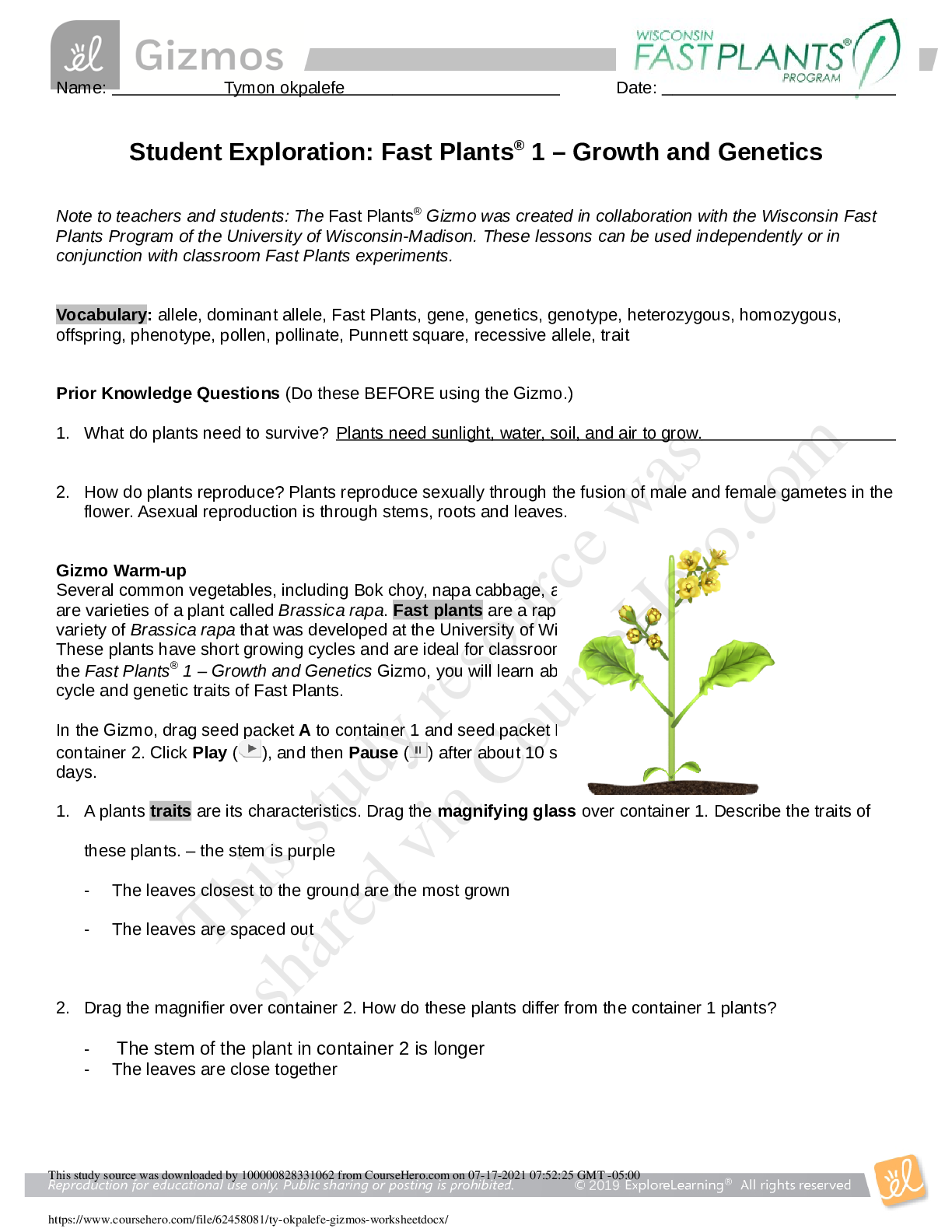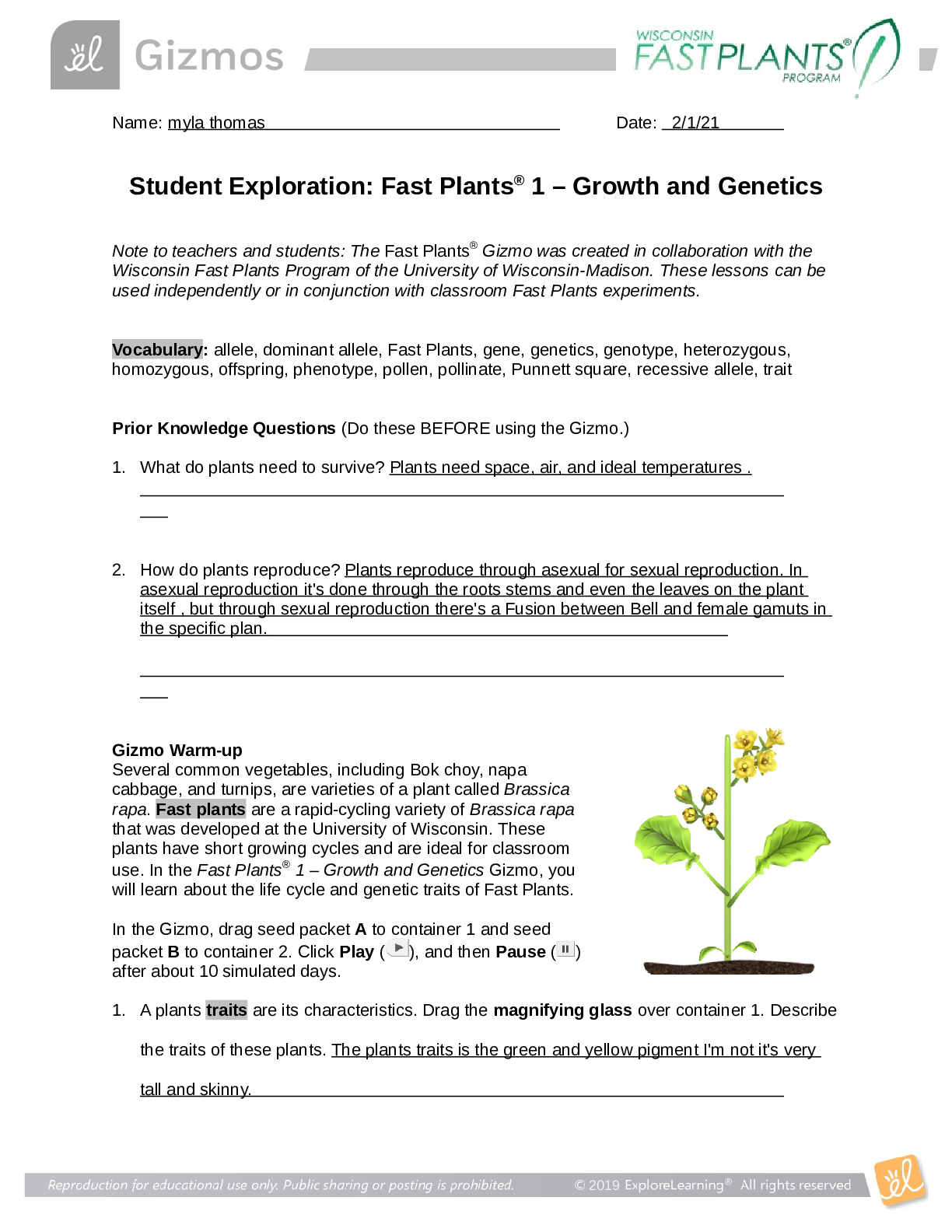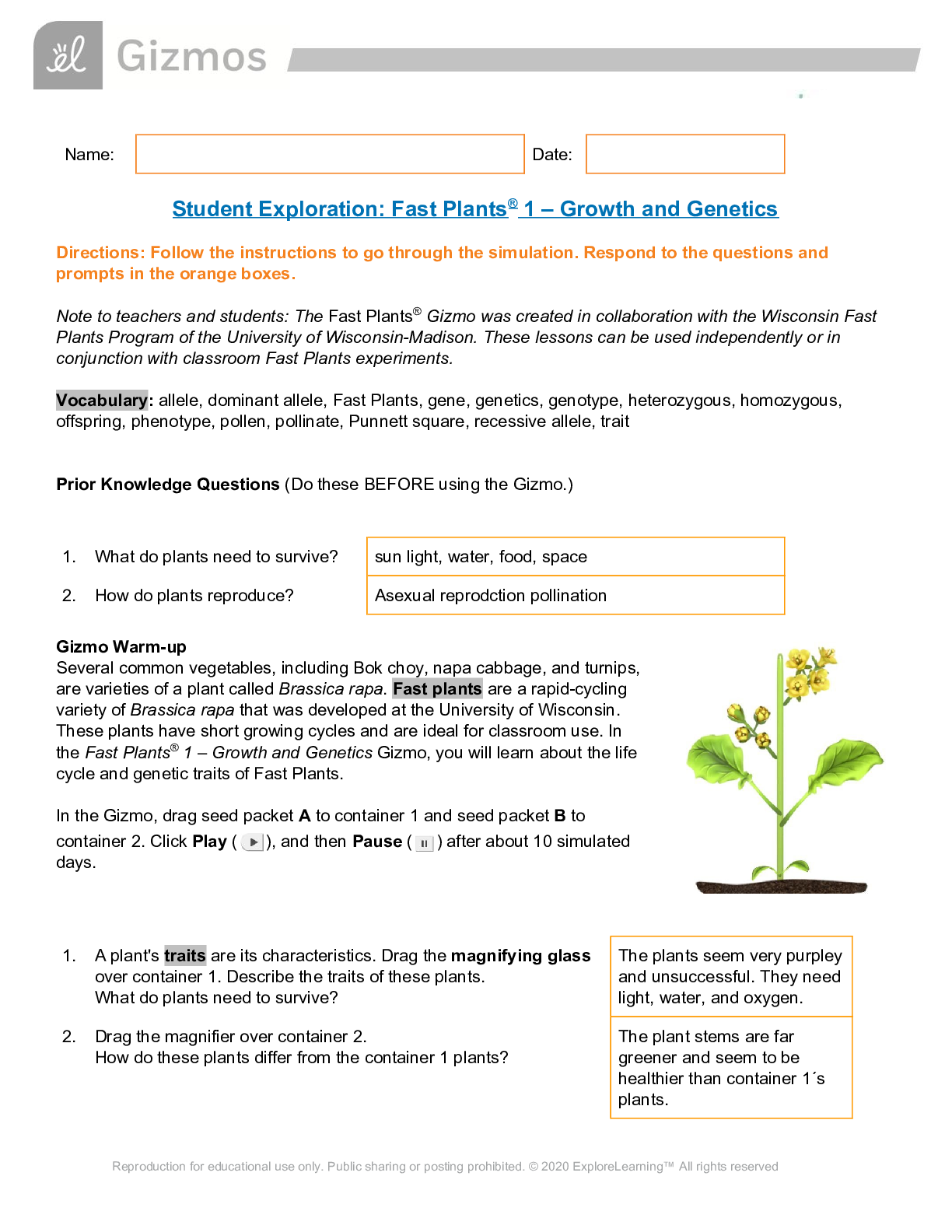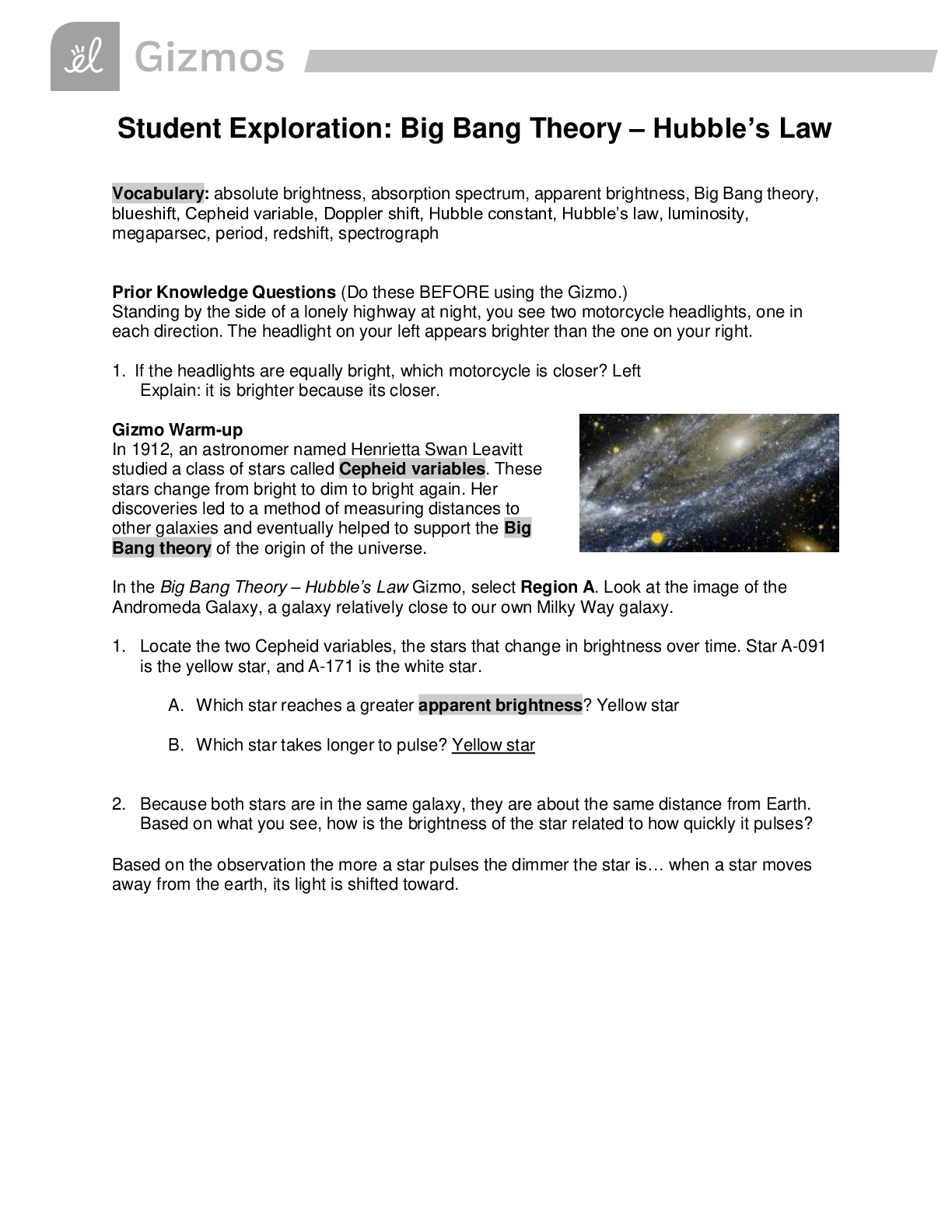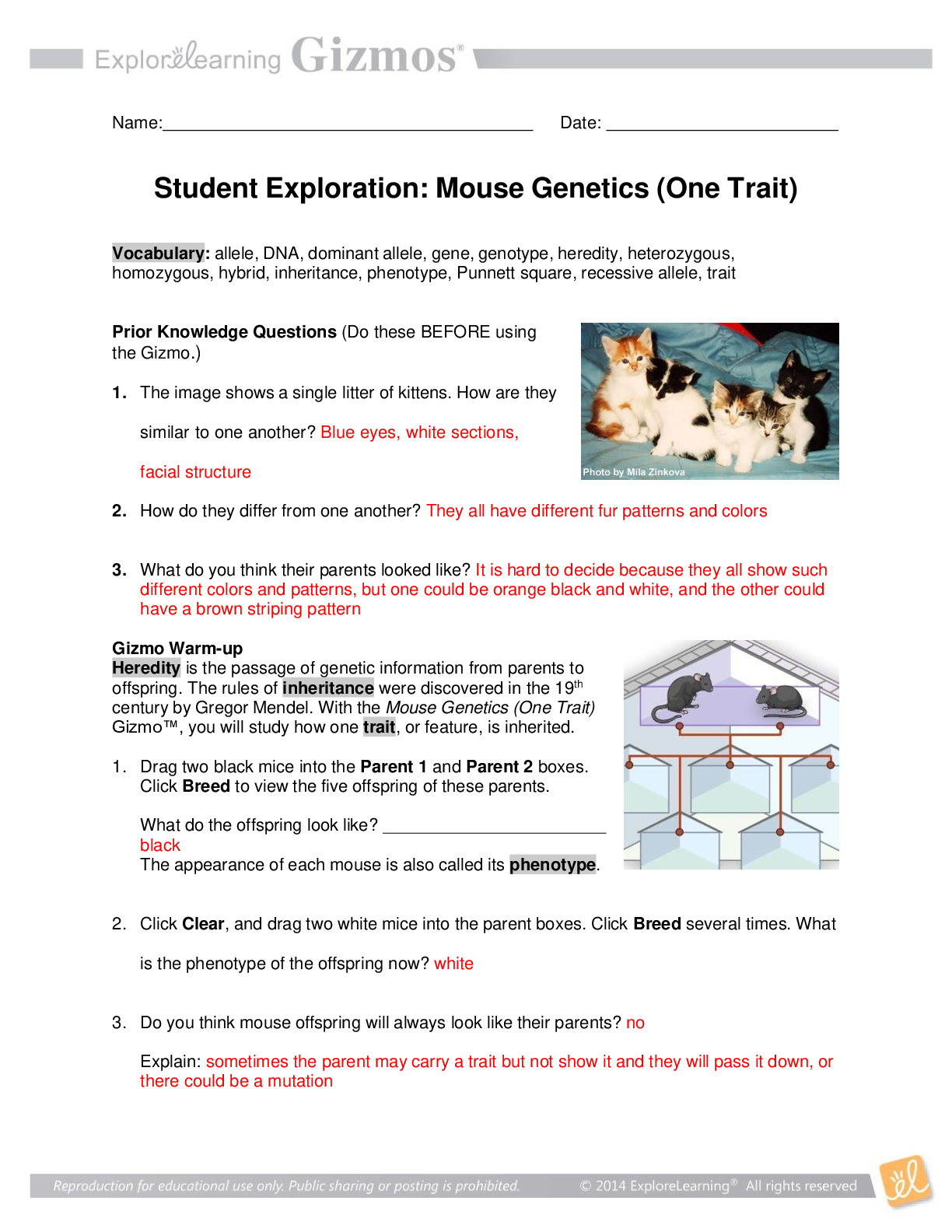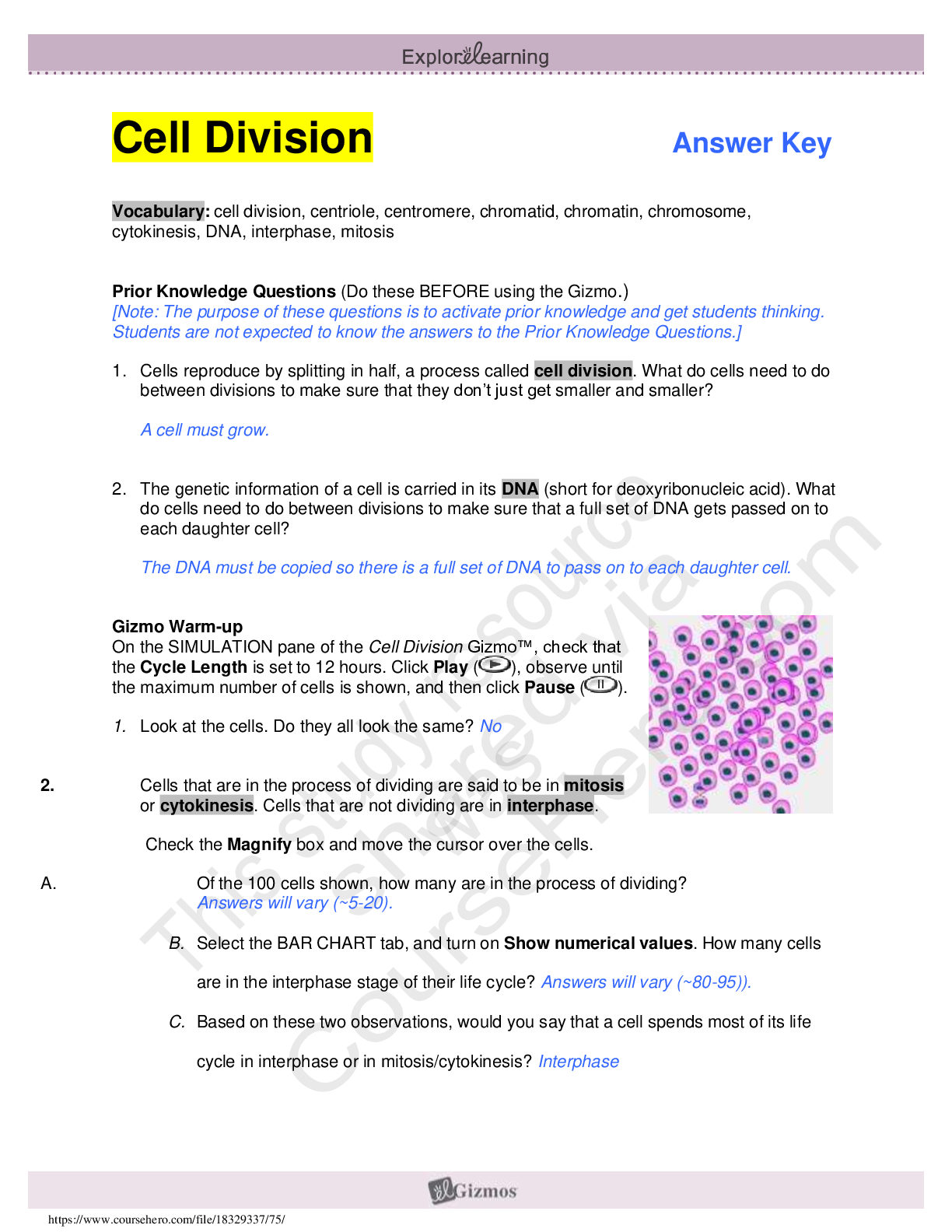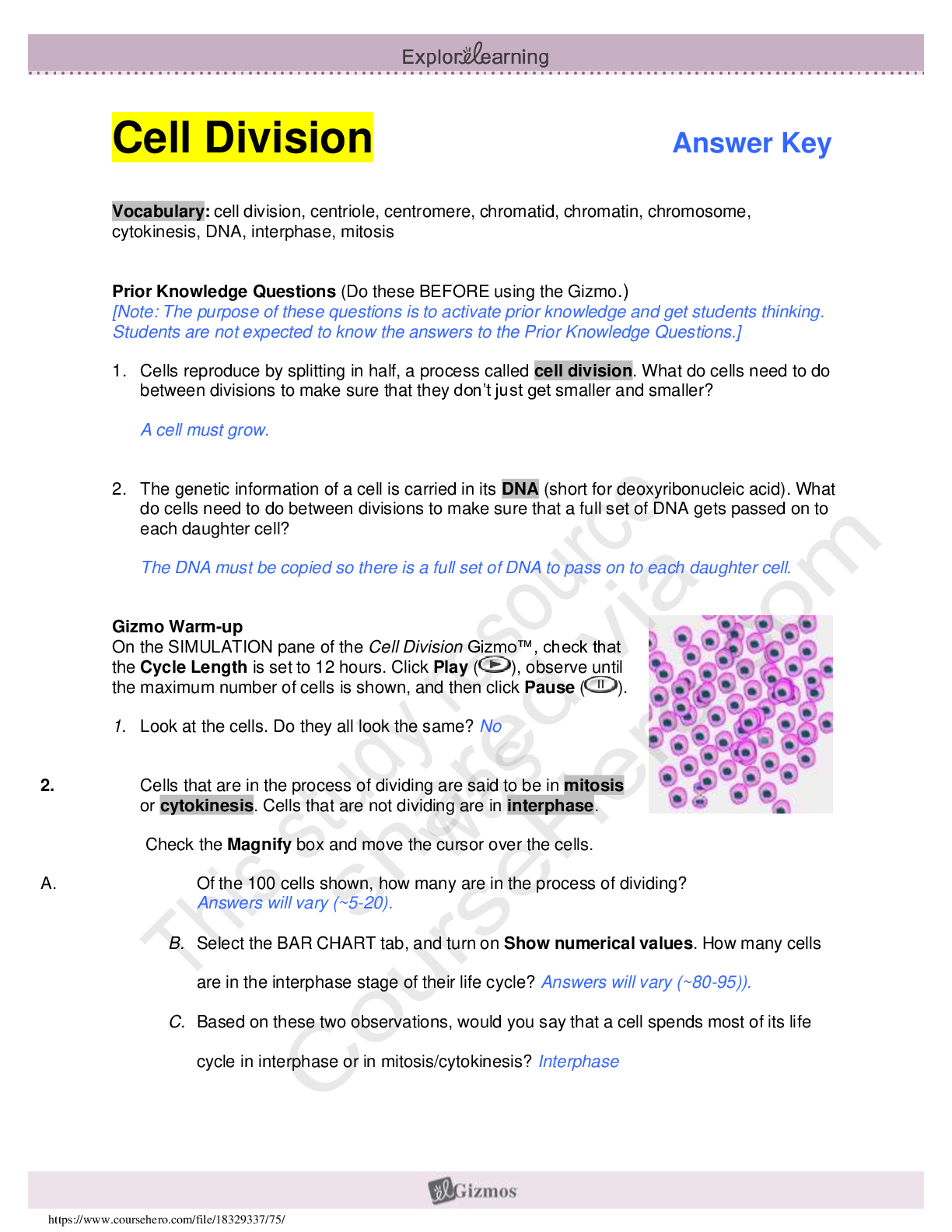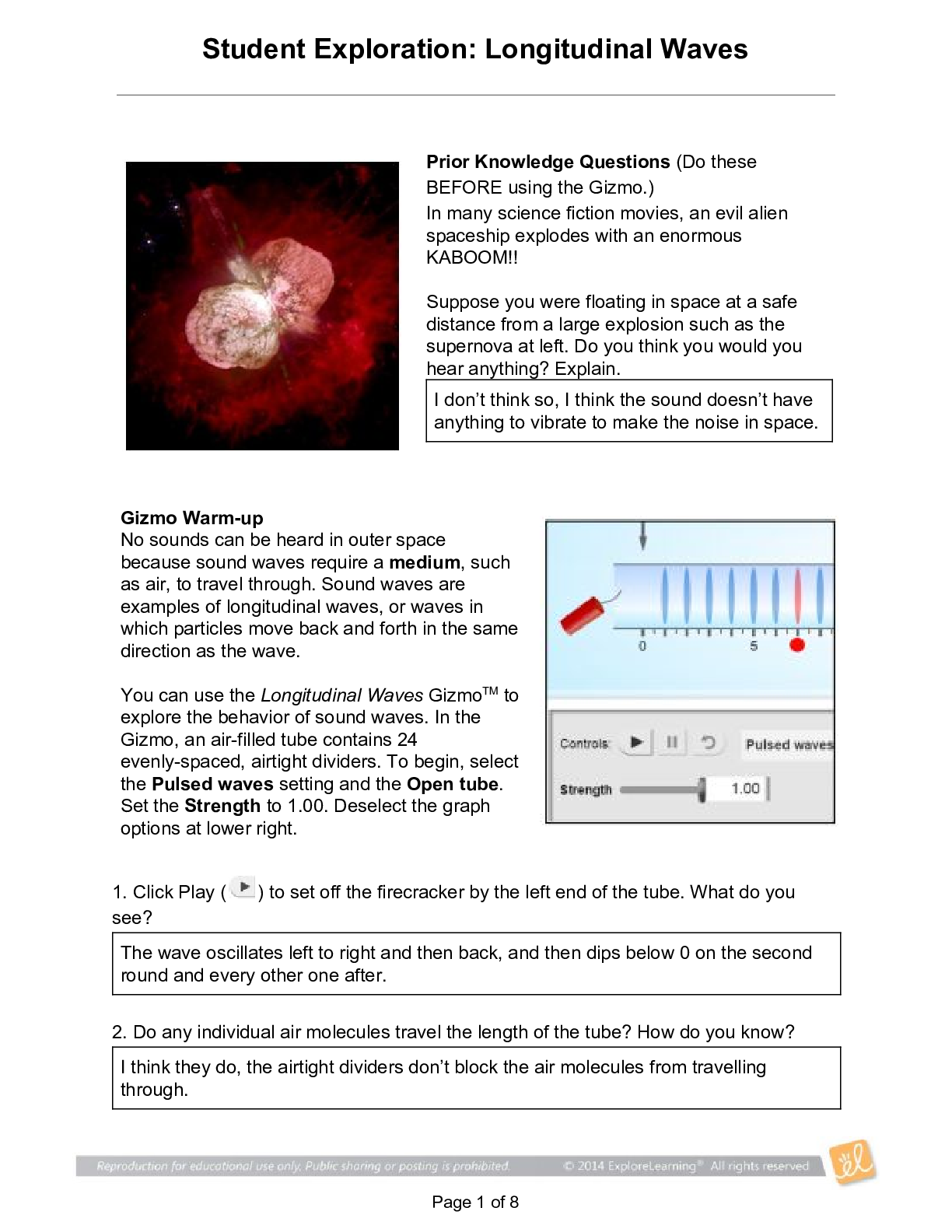Biology > GIZMOS > BIO 101 _ Fast Plants 1 – Growth and Genetics_Gizmos_2021/22 | Student Exploration: Fast Plants (All)
BIO 101 _ Fast Plants 1 – Growth and Genetics_Gizmos_2021/22 | Student Exploration: Fast Plants 1 – Growth and Genetics
Document Content and Description Below
Directions: Follow the instructions to go through the simulation. Respond to the questions and prompts in the orange boxes. Note to teachers and students: The Fast Plants ® Gizmo was created in co... llaboration with the Wisconsin Fast Plants Program of the University of Wisconsin-Madison. These lessons can be used independently or in conjunction with classroom Fast Plants experiments. Vocabulary: allele, dominant allele, Fast Plants, gene, genetics, genotype, heterozygous, homozygous, offspring, phenotype, pollen, pollinate, Punnett square, recessive allele, trait Prior Knowledge Questions (Do these BEFORE using the Gizmo.) Gizmo Warm-up Several common vegetables, including Bok choy, napa cabbage, and turnips, are varieties of a plant called Brassica rapa. Fast plants are a rapid-cycling variety of Brassica rapa that was developed at the University of Wisconsin. These plants have short growing cycles and are ideal for classroom use. In the Fast Plants ® 1 – Growth and Genetics Gizmo, you will learn about the life cycle and genetic traits of Fast Plants. In the Gizmo, drag seed packet A to container 1 and seed packet B to container 2. Click Play ( ), and then Pause ( ) after about 10 simulated days. Reproduction for educational use only. Public sharing or posting prohibited. © 2020 ExploreLearning™ All rights reserved Name: Hunter Leija Date: 2/9/2021 1. What do plants need to survive? Water, Sunlight, Nutrients in the soil, space, and CO2 2. How do plants reproduce? By pollination 1. A plants traits are its characteristics. Drag the magnifying glass over container 1. Describe the traits of these plants. What do plants need to survive? All of them have purple stems and green leaves 2. Drag the magnifier over container 2. How do these plants differ from the container 1 plants? The green stems have lighter leaves, rather than purple stems. Introduction: Fast Plants ® are grown in wicking systems, typically made of nested plastic containers. The larger container is the water reservoir. Water from the reservoir travels through the wick into the soil, where roots draw the water into stems and leaves. Question: How do Fast Plants grow and reproduce? 1. Grow: With seeds A in container 1, click Play. Click Pause on day 17. 2. Pollinate: The bee stick should be active at the bottom of the Gizmo. A bee stick is a dead bee glued on a toothpick. Drag the bee stick through the flowers. A. What happens to the appearance of the bee stick as it is dragged through the flowers? The bee’s hairy thorax (middle section) is covered in pollen. Pollen is produced by male reproductive organs in the flower. Each grain of pollen contains a sperm cell. B. What happens to the flowers? The orange color represents flowers that are pollinated, or fertilized. (In reality, pollinated flowers do not turn orange. This is done to show pollination in the Gizmo.) 3. Grow: Turn on Auto-watering. This will keep the containers full of water automatically. Click Play, and then Pause around day 24. Use the magnifier to observe the plants. A. What do you notice happening at the top of the plants? Pollinated flowers develop into long, thin seedpods. Reproduction for educational use only. Public sharing or posting prohibited. © 2020 ExploreLearning™ All rights reserved Activity A: The Fast Plants ® life cycle Get the Gizmo ready: ● Click Reset ( ). Plant seeds A in container 1. ● Turn on Show hints. A. Is the container full of water? No If not, drag the water bottle to the container. B. Do the plants look like they are too crowded? Yes If so, use the tweezers to pull out a few plants and discard them in the waste hole. It becomes brighter and more yellow, it is showing the pollen on the bee. The flowers become fertilized Pollinated flowers develop into long, thin seedpods. B. Click Play, and then Pause at day 38. Is the container filled with water? No its not filled with water This is not a mistake. At this time, the auto-watering system turns off so the plants can dry out and the seeds do not rot. 4. Harvest: Click Play and let the simulation run until it ends on day 44. Fast Plants ® are unique because they have very quick life cycles, going from seed to mature seedpod in only six weeks. Grab an empty seed bag and place it on the counter. Then, use the tweezers to carefully grab one seedpod from the dried plants. (This may take a few tries.) Release the seedpod over the empty bag. The seed bag now contains seeds that are the offspring of the parent A seeds. 5. Compare: Plant the A seeds in container 1 and the offspring seeds in container 2. Click Play and then Pause after 10-15 days. Use the magnifier to observe the plants in each container. 6. Experiment: The Gizmo allows you to see how several different factors influence the growth of the plants. For example, you can click on the light to try low-light or no-light conditions. You can also try growing the plants with and without water or in normal or crowded conditions. Using the Gizmo, see how each of these factors affects the growth of the plants. 7. On your own: Turn off Auto-watering. Use the Gizmo to measure how quickly the plants consume water as they grow. What did you find? Reproduction for educational use only. Public sharing or posting prohibited. © 2020 ExploreLearning™ All rights reserved A. What happens? Them mature seeds go into the seed bag after being plant that are being dried out. B. Click on the seed bag. Type a two-letter label for the seed bag and write a description. Congratulations! You have completed the life cycle of a Fast plant.What happens? A. How do the offspring plants compare to the parent plants? The offspring plants B. Do all of the offspring plants have the same traits? Yes they all have green stems and green leaves A. How does low light affect the growth of the plants? When the plants take longer than usual to grow under low light and flowers don’t bloom till later on the process. B. How does no light affect the plants? It limits them from reaching the final maturity stage. C. In normal light conditions, how well do plants grow when there are 10 plants in the container compared to when there are only 6 plants in the container? When there is too many, many plants end up not producing or growing. D. What happens to the plants i [Show More]
Last updated: 1 year ago
Preview 1 out of 8 pages
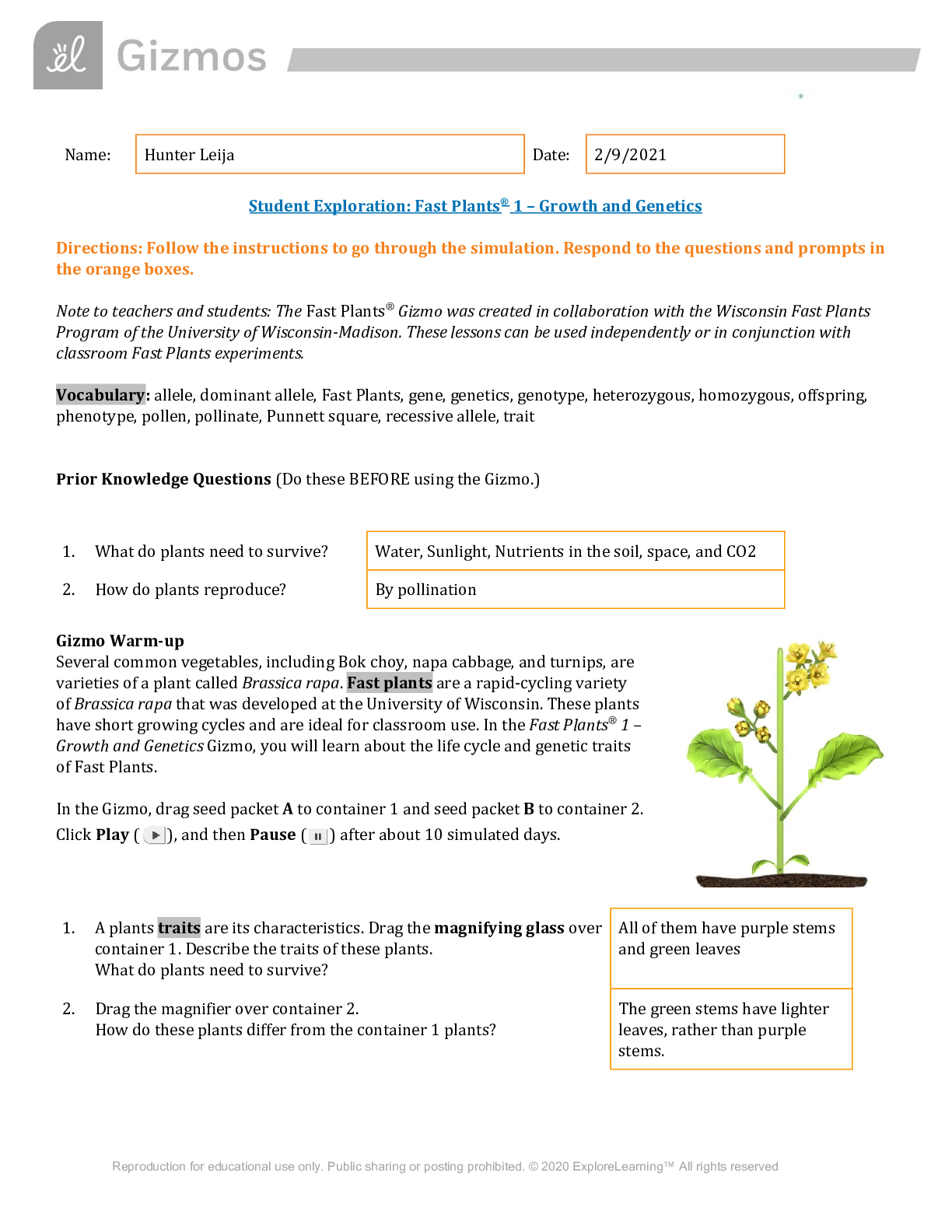
Reviews( 0 )
Document information
Connected school, study & course
About the document
Uploaded On
Apr 09, 2022
Number of pages
8
Written in
Additional information
This document has been written for:
Uploaded
Apr 09, 2022
Downloads
0
Views
98

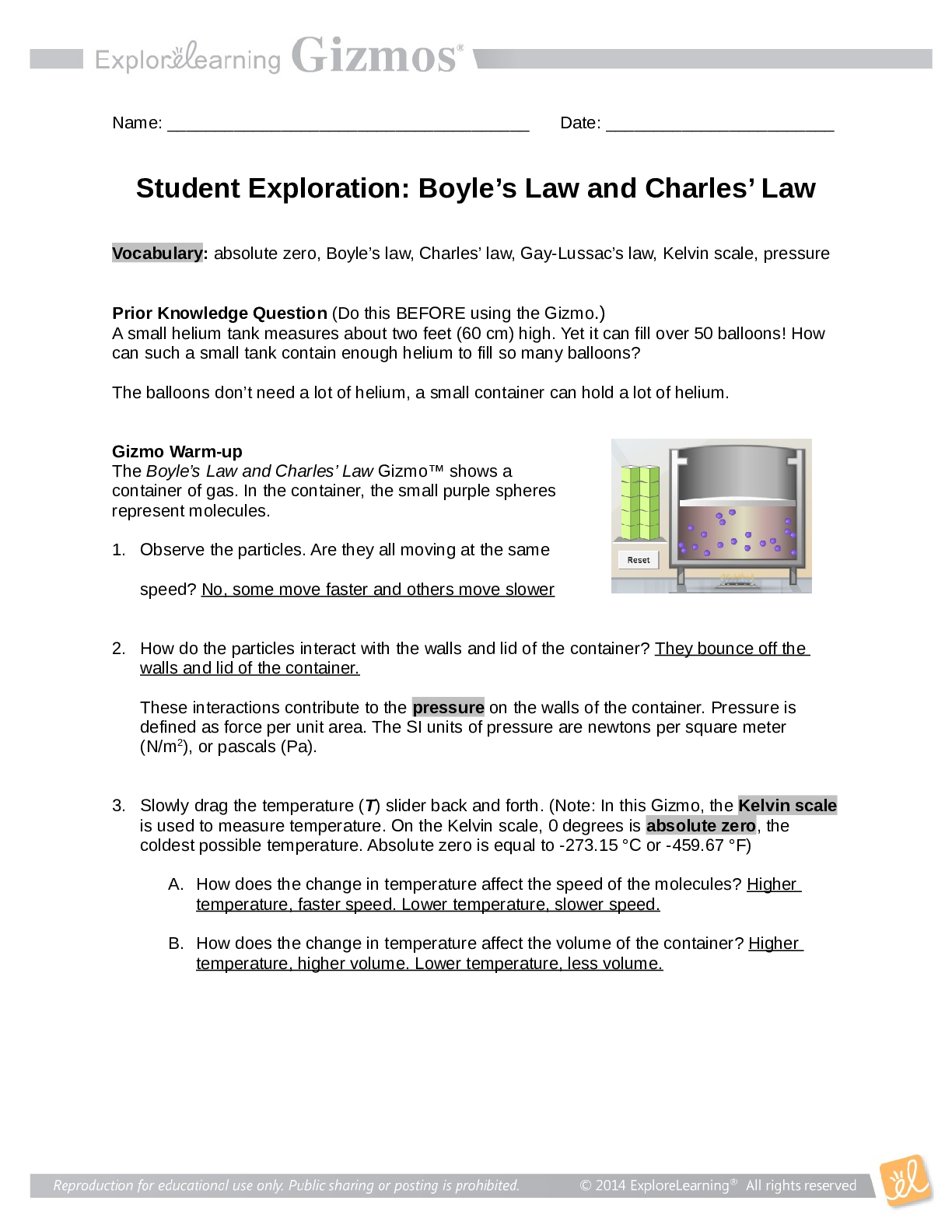



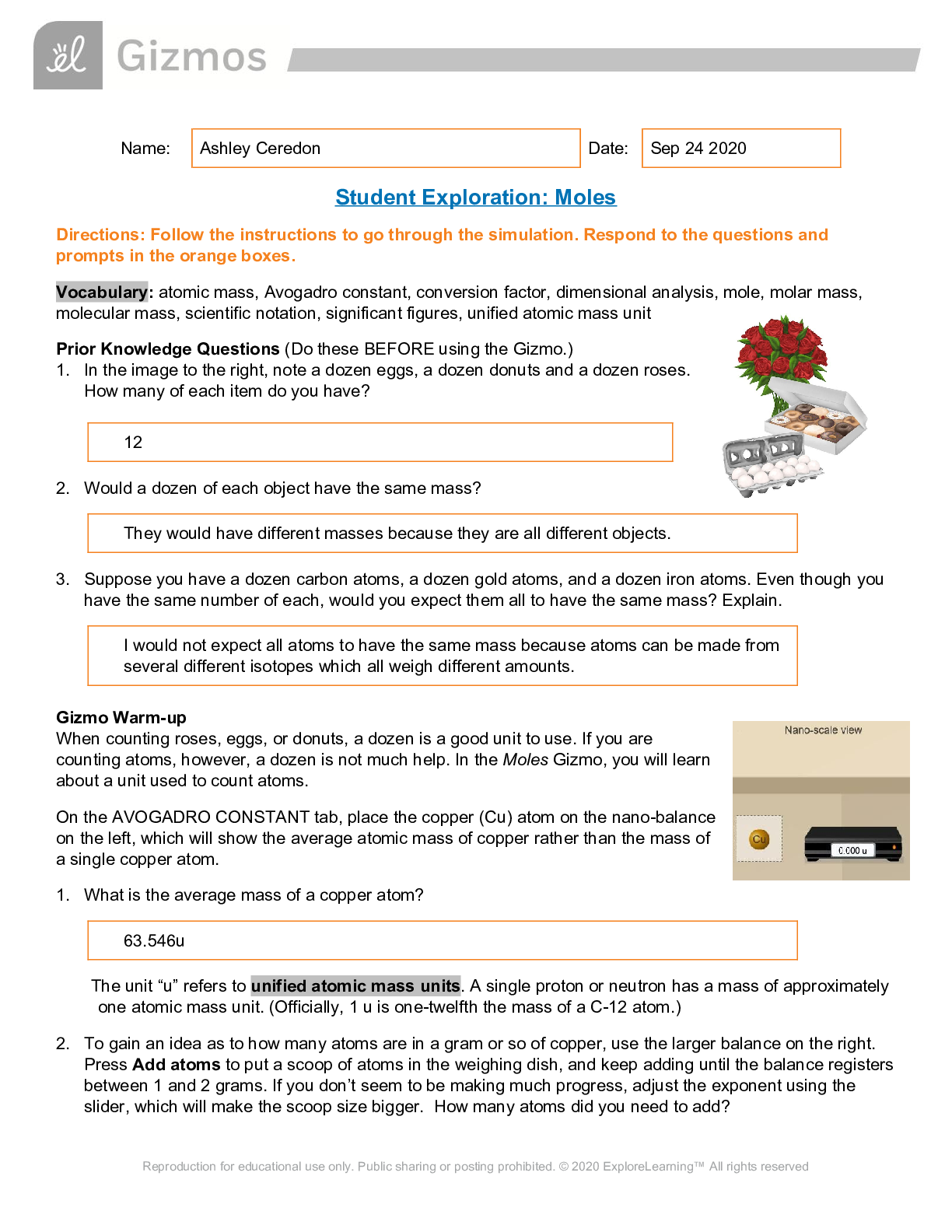
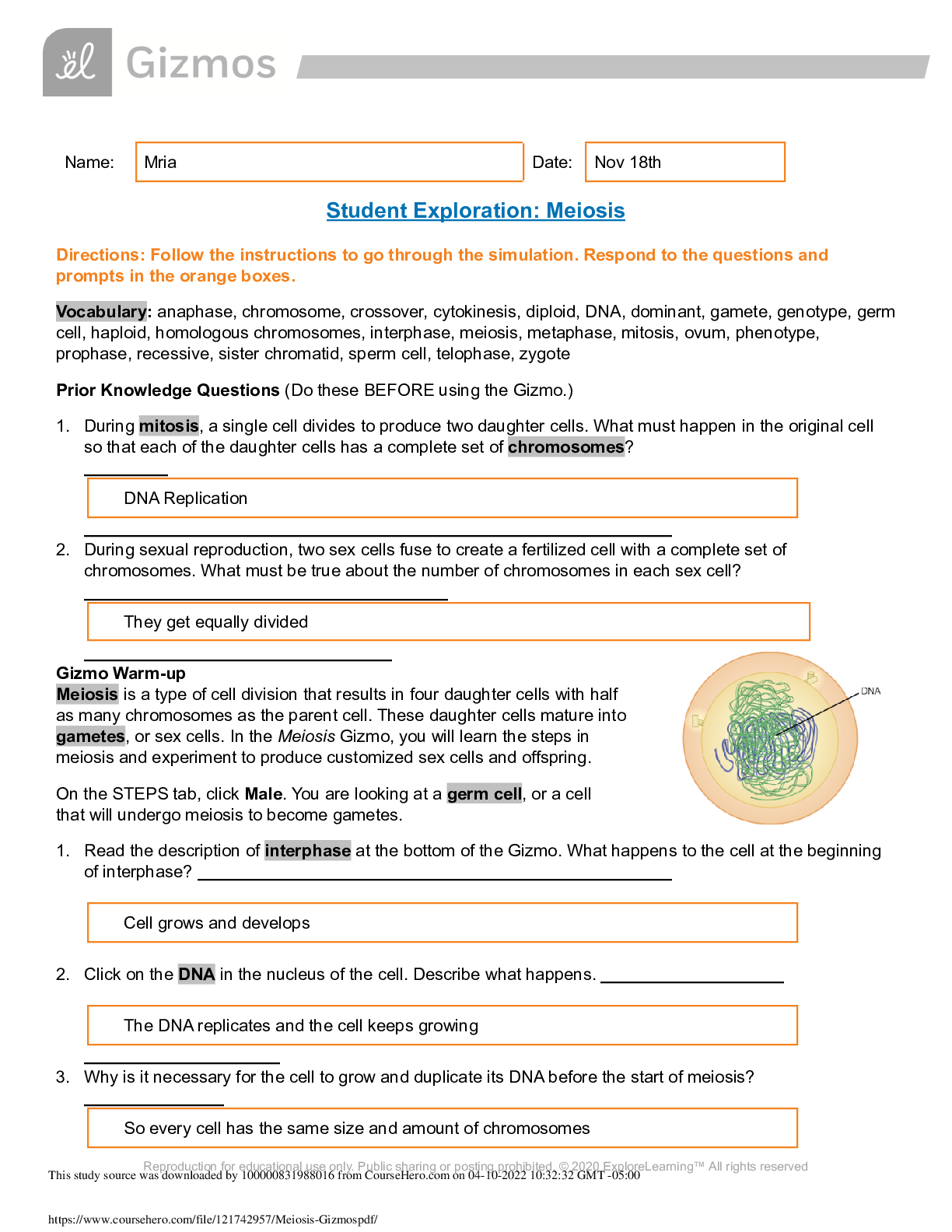


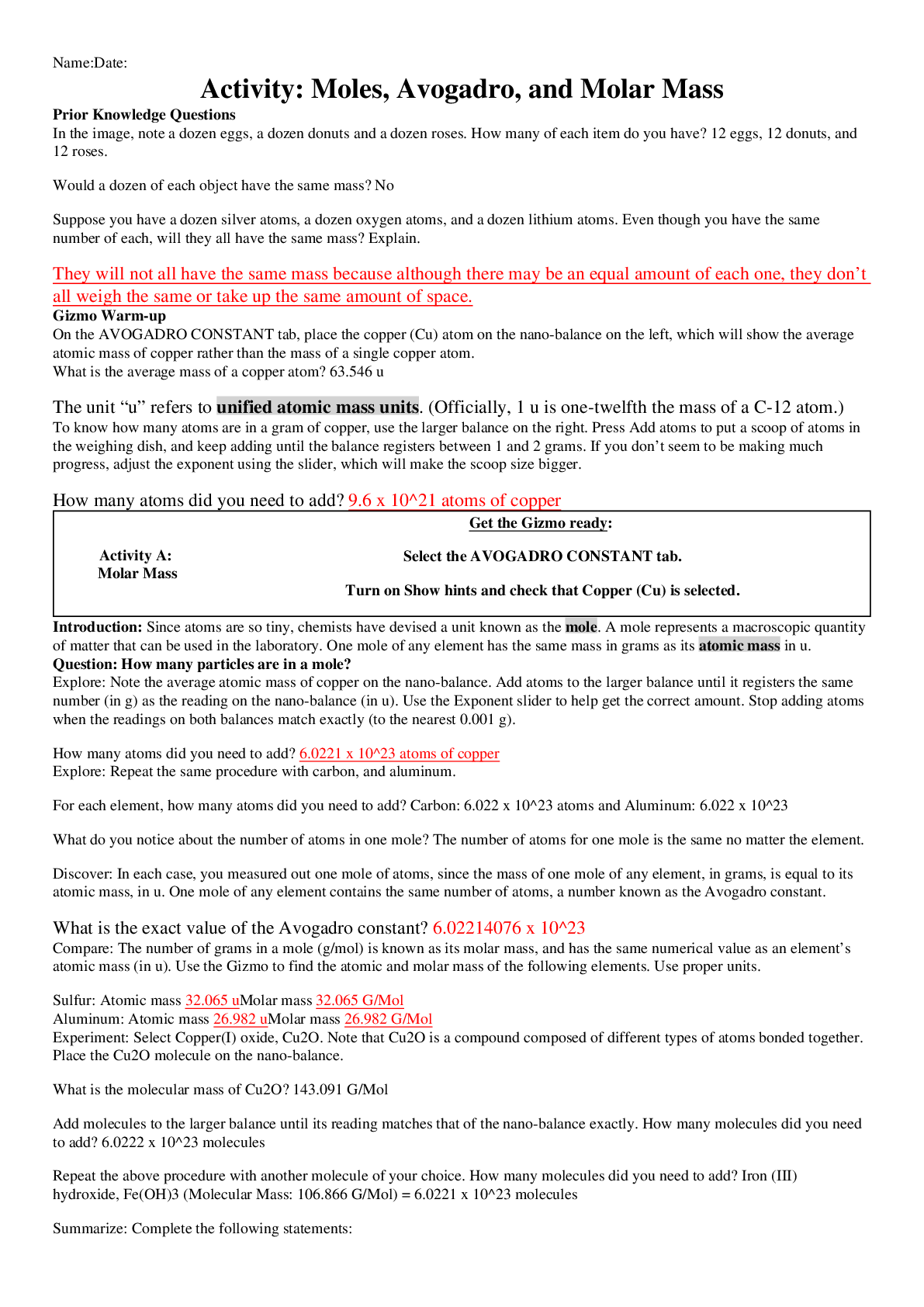
.png)

